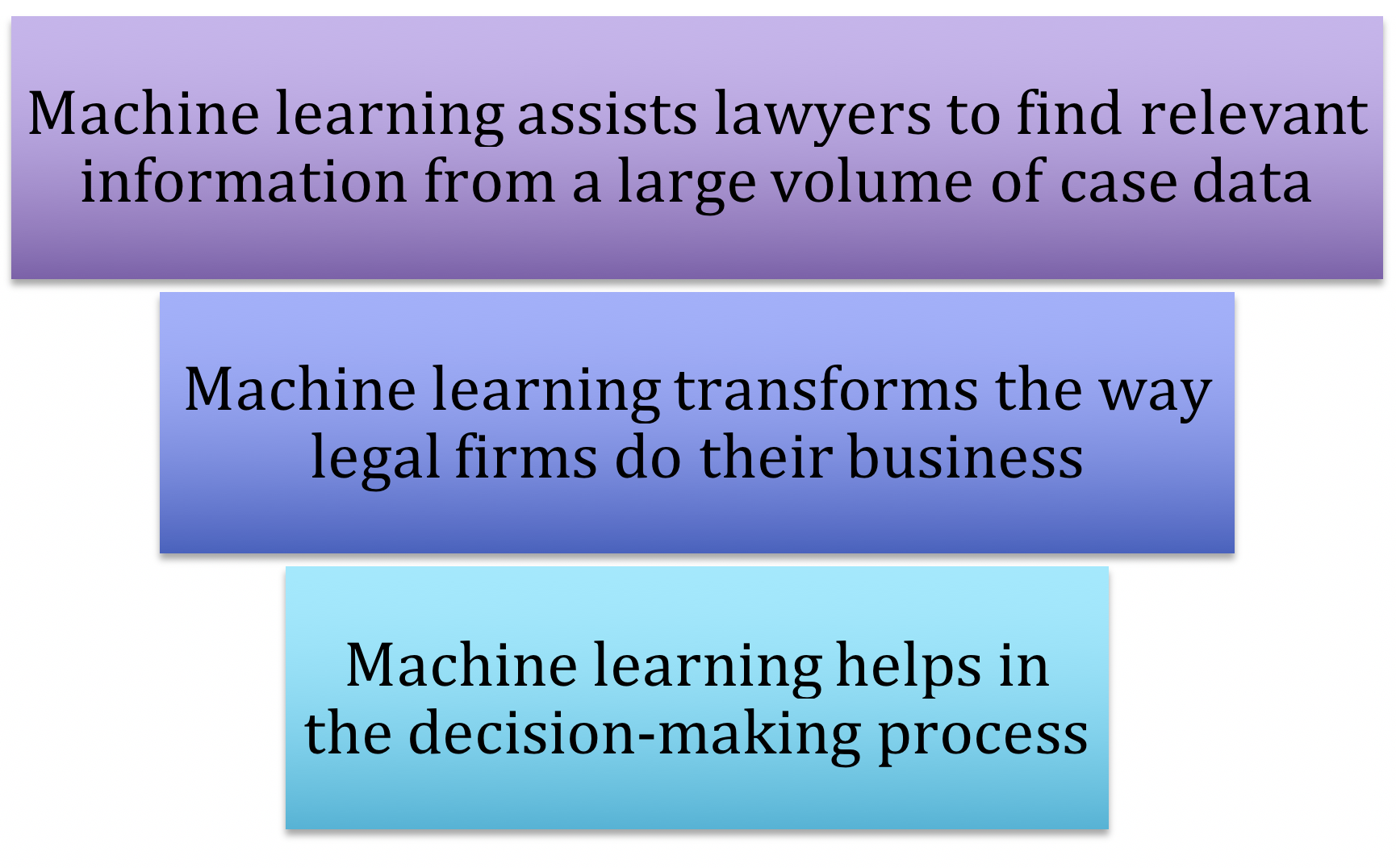Comments (2)
Dave Williams
Great explanation
Laura Charlton
Nice post, that was a useful read.

Machine learning is set to revolutionise the legal industry by fulfilling lawyers' legal demands and helping judges make better decisions.
We have seen machine learning technologies impacting our daily life. Right from Google’s ‘’Did you mean” section to Amazon’s “Customers also bought,” from Siri to movie recommendations on Netflix, machine learning is influencing our days in and out. Machine learning offers numerous benefits to various industries such as retail, healthcare, manufacturing, and even the legal industry. Machine learning algorithms gather data and enables computers to analyze and adapt the human behavior. Similarly, machine learning in the legal industry helps the entire industry with its amazing features. Let us take a look at what are the challenges faced by the traditional legal system and how machine learning is changing the legal industry.
A large volume of data pours into legal firms, from client-related documents to case study documents. Managing such voluminous amounts of data, along with meeting the security constraints, is a tedious job. It is incredibly taxing for lawyers to file up all the data carefully and to then study for the case. The whole process takes a lot of time. Moreover, to manage the data will need few assistants who can help lawyers to perform their job well. Again, hiring assistants is time consuming and at the same time costly, as well. Furthermore, attorneys will not just handle a single client, and managing all clients and also developing a litigation plan becomes difficult with the traditional legal models. These challenges generated the need for advanced technologies that will assist the legal sector to overcome challenges.

With its powerful features, machine learning can gather big data and find patterns in the collected data. Machine learning in the legal sector could help lawyers:
As of now, legal data is stored digitally. It, therefore, becomes, even more, easier for machine learning to provide efficient services. Predictive analysis can help lawyers understand which judge could make the right decision for their client by gaining data from their past legal decisions. Machine learning can help lawyers save their time by providing clients with chatbots. These chatbots can assist the clients with primary legal processes, allowing attorneys to concentrate on other essential operations. Moreover, machine learning helps streamline legal operations by processing tons of documents and providing relevant information more accurately than a set of lawyers would do. Furthermore, machine learning can help judges to make better decisions regarding cases. Machine learning learns over time, and this feature can learn from the decision that judges make on similar legal cases.
However, not many legal firms have adopted machine learning as of now. The legal firm must have a clear understanding of what machine learning is and how it would help them enhance their business before they leverage it. With its benefits, machine learning in the legal industry could make path-breaking innovations and enhance their business growth.
Great explanation
Nice post, that was a useful read.
Naveen is the Founder and CEO of Allerin, a software solutions provider that delivers innovative and agile solutions that enable to automate, inspire and impress. He is a seasoned professional with more than 20 years of experience, with extensive experience in customizing open source products for cost optimizations of large scale IT deployment. He is currently working on Internet of Things solutions with Big Data Analytics. Naveen completed his programming qualifications in various Indian institutes.
Leave your comments
Post comment as a guest